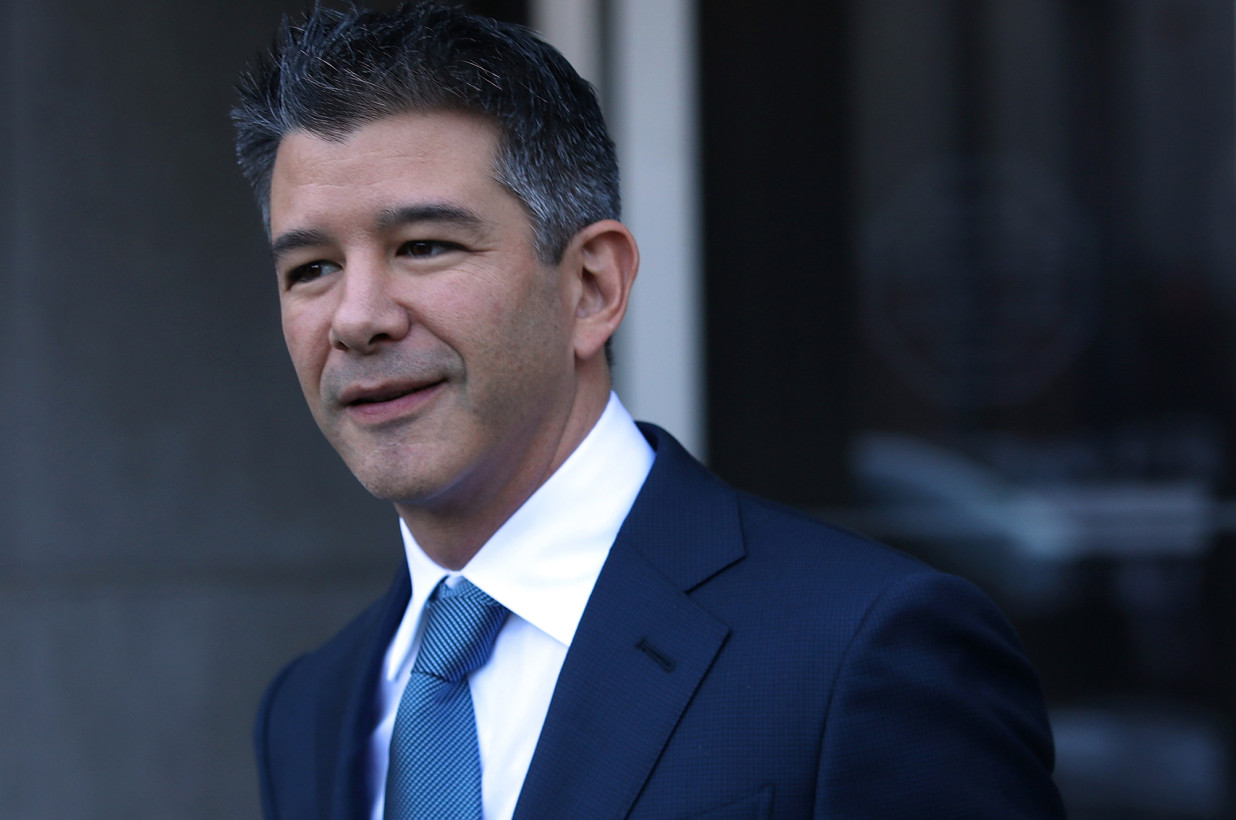The Daily Ten – Travis Kalanick spent $130 million on real estate deals, Goldman Sachs $2.1 Billion Settlement, Montana Property Gold Rush…

The Daily Ten
1. Travis Kalanick’s ‘ghost kitchen’ firm has spent $130M on real estate | New York Post
Uber founder Travis Kalanick’s food delivery startup has spent more than $130 million on real estate as it looks to build out a network of “ghost kitchens,” a new report says.
Entities linked to CloudKitchens — which rents food-prep spaces to delivery-only restaurants — have snapped up more than 40 properties in almost two dozen cities over the past two years, the Wall Street Journal reported Tuesday.
The buildings include a $6.6 million industrial property in Queens and a $9.2 million vacant restaurant space in Miami, according to the paper, which connected the limited liability companies that now own the properties to CloudKitchens’ parent firm, City Storage Systems LLC.
2. Report: Goldman Sachs Agrees To Pay U.S. Government $2.8 Billion To Settle 1MDB Charges | Forbes
Goldman Sachs has agreed to pay the U.S. government about $2.8 billion and admit fault for the 1MBD corruption scandal while deferring prosecution on the charges, the Wall Street Journal reported Tuesday, in a settlement that would cap a yearslong investigation and allow Goldman to avoid criminal charges.
Malaysia accused Goldman of misleading investors about three bond sales totaling $6.5 billion the bank helped raise for the state fund 1Malaysia Development Bhd, known as 1MBD for short, which was established in 2009 to promote economic development. Former Malaysian Prime Minister Najib Razak and Malaysian financier Low Taek Jho cofounded the fund. The U.S. Department of Justice said $4.5 billion was funneled to offshore bank accounts and shell companies, including many connected to Low.
3. Amazon launches one-hour grocery pickup at all U.S. Whole Foods stores | CNBC
Amazon is making it faster for Prime members to place Whole Foods orders online and pick them up at the store, in the latest sign of growing demand for curbside pickup services.
Amazon is launching free, one-hour grocery pickup for Prime members at all Whole Foods stores in the U.S., the company announced Wednesday. To qualify for one-hour pickup, grocery orders must total $35 or more. There are currently 487 Whole Foods stores in the U.S.
The feature presents a new perk for Prime members, who pay $119 per year for free shipping and access to other services like Prime Video and Music, as well as free Amazon Fresh grocery deliveries. Before Wednesday’s announcement, Prime members could pick up Whole Foods orders only at select stores.
4. Commercial REITs for Small Investors See Increasing Demand | WSJ
Nontraded real-estate investment trusts are again bringing in money after a pandemic slowdown
A new type of commercial real-estate fund that targets small investors is raking in money again after demand cooled during the early months of the coronavirus pandemic.
The open-ended funds, known as nontraded real-estate investment trusts, are run by big firms like Blackstone Group Inc. and Starwood Capital Group that typically deal with institutional investors. The new products typically take investments of as little as $2,500 and have been paying dividends above 5% without the volatility of the stock market.
5. U.S. Department of Justice files antitrust lawsuit against Google | Venture Beat
(Reuters) — The U.S. Justice Department and 11 states filed an antitrust lawsuit against Alphabet Inc’s Google on Tuesday for allegedly breaking the law in using its market power to fend off rivals.
The lawsuit marks the biggest antitrust case in a generation, comparable to the lawsuit against Microsoft filed in 1998 and the 1974 case against AT&T which led to the breakup of the Bell System.
Google, whose search engine is so ubiquitous that its name has become a verb, did not immediately respond to a request for comment. The company had revenue of $162 billion in 2019, more than the nation of Hungary.
6. Zest raises $15 million to reduce loan algorithm bias | Venture Beat
Zest AI, a company developing AI-powered loan decisioning products, today closed a $15 million funding round led by Insight Partners. A spokesperson says the capital will be used to accelerate Zest’s go-to-market efforts and product R&D.
About 1 out of every 9 loan applications (10.8%) for home buying — and more than 1 in 4 applications (26.4%) for refinancing — were denied in 2017, according to a nationwide analysis of lender data conducted by the U.S. Bureau of Consumer Financial Protection. Minorities were disproportionately rejected, with the overall denial rate for mortgage applications from Black Americans reaching 18.4% in 2018. (Hispanic and Asian applicants were rejected 13.5% and 10.6% of the time, respectively, compared with 8.8% for non-Hispanic white applicants.)
7. Apollo Board Will Review Leon Black’s Ties to Jeffrey Epstein | The New York Times
Mr. Black, the chief executive and chairman of Apollo Global Management, asked independent board members to examine his relationship with the convicted sex offender.
The billionaire Leon Black’s decades-long relationship with the convicted sex offender Jeffrey Epstein will be reviewed by a group of board members at the private equity firm he leads, Apollo Global Management.
A spokeswoman for Apollo said Tuesday night that Mr. Black requested the review by members of the firm’s conflicts committee during a regularly scheduled board meeting.
Mr. Black asked for the review a little more than a week after The New York Times reported that he had wired at least $50 million in fees and donations to entities affiliated with Mr. Epstein in the U.S. Virgin Islands from 2012 to 2017.
Shares of Apollo have fallen more than 13 percent since the report was published. The firm reports quarterly earnings on Oct. 29.
8. New homes on the range: Weary city dwellers escape to Montana, creating a property gold rush | Washington Post
BOZEMAN, Mont. — The four-bedroom contemporary just west of town smelled of fresh paint, flooring, sealant and new beginnings. The Bridger Mountains beckoned against an azure sky off the back deck, and Robert Carder, Montana’s newest transplant, couldn’t contain himself.
“This is your new home, Conner!” he exclaimed to his 57-pound Australian cattle dog, whose paws were slipping on the wood floor in the living room. Carder spread his arms wide. “How much bigger is this than the picture?” he asked his wife, Valentina, confirming what the couple from Los Angeles already knew.
Their living room didn’t just seem bigger than the photos on Zillow that had led them to make a $559,000 offer after 24 hours in Montana, a place they had never been. The 2,300-square-foot house was twice the size of the two-bedroom condo they sold in Brentwood, Calif., before packing their cars and driving 16 hours northeast, released from the confines of the coronaviruspandemic and the jobs Robert had grown to hate and Valentina had lost.
9. JLL’s OfficeBlocks proptech platform allows investors to check rents, vacancies and risk profile with just a photo | South China Morning Post
OfficeBlocks allows users to conduct due diligence and invest in Asia-Pacific commercial real estate by simply using a photo of the building
Launched by JLL and Risk Integrated, the app costs subscribers a US$5,000 per city per month
With the coronavirus pandemic disrupting travel and making it impossible to conduct due diligence on prospective real estate investments, a new proptech platform allows potential investors to access information and carry out a detailed analysis, eliminating the need to get on a plane.
OfficeBlocks, launched by JLL and Risk Integrated, covers thousands of commercial real estate in major cities across Asia-Pacific, allowing investors anywhere in the world to check rents, vacant floors or units available for leasing and the risk profile by simply using a photo of the property.
10. Apartment Rents Are Plunging in the World’s Richest Cities. It’s Time For You to Negotiate | Bloomberg
Desire for space and stuck-at-home students weigh on formerly desirable areas — but for how long?
In the world’s big financial centers — from New York to Toronto to London to Sydney — rents for inner-city apartments are plunging.
International students who normally bolster demand are stuck at home and young renters — the most mobile group in real estate — are finding fewer reasons to pay a premium to live in what is, for now, no longer the center of things.
“You’re daft if you aren’t negotiating lower rent right now,’’ said Tim Lawless, Asia Pacific head of research for data provider CoreLogic Inc. “Supply is high and occupancy has fallen off a cliff.”
With remote working in vogue for everyone from banks to tech companies, and the quirky shops and bars that made living in a city fun curtailed, the equation about where to live is changing. And so is the balance of power between landlords and tenants.


